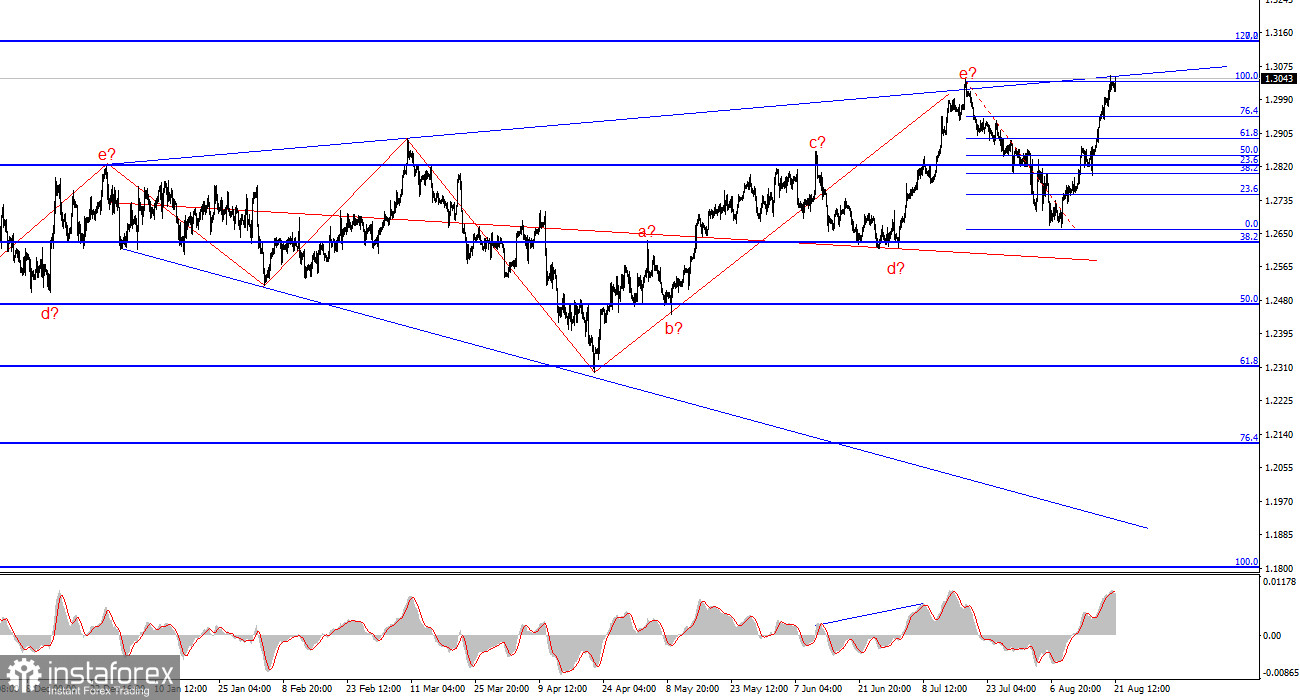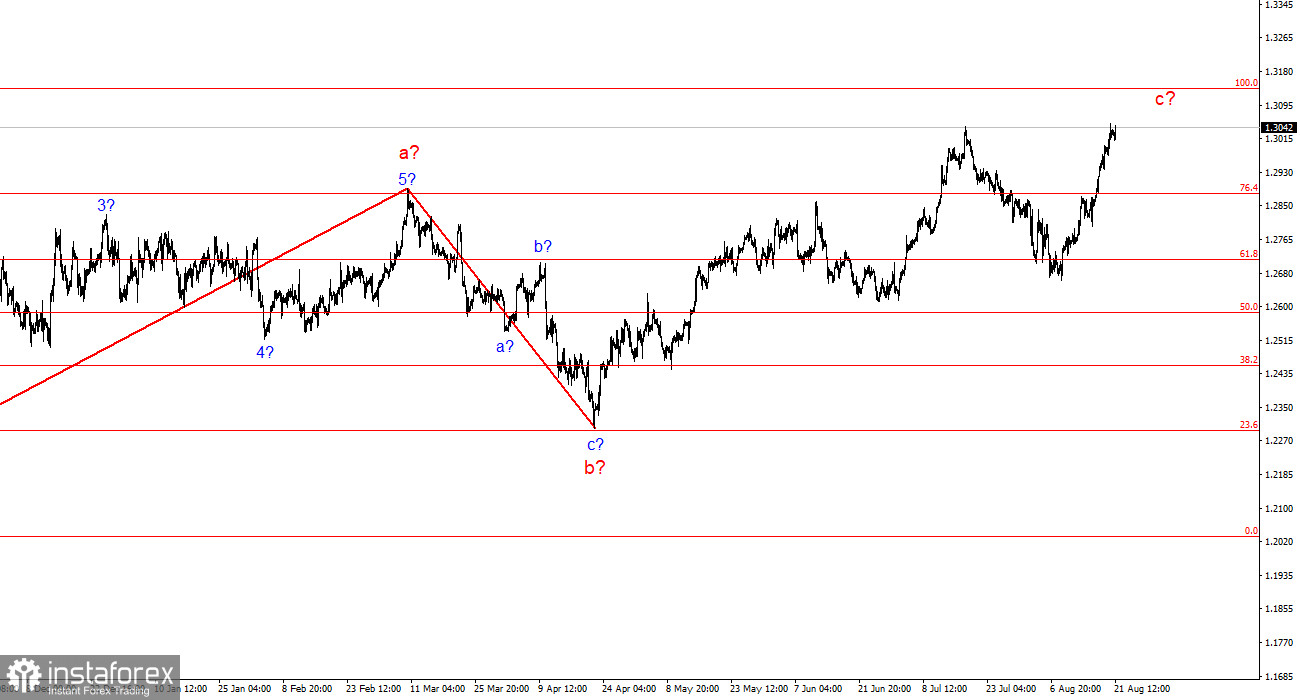
Analysis for GBP/USD pair on August 21, 2024
The GBP/USD exchange rate increased by another 10 basis points on Wednesday.
The wave pattern for GBP/USD continues to be quite complex and ambiguous. For a while, the wave pattern seemed fairly convincing, suggesting the formation of a downward wave set with targets located below the 1.23 level. However, in practice, demand for the U.S. dollar increased too much for this scenario to play out.
At this point, the wave pattern has become somewhat unreadable. I would like to remind you that in my analysis, I strive to use simple structures, as complex ones contain too many nuances and ambiguous aspects. We currently observe an upward wave overlapping a downward wave, which in turn overlaps the previous upward wave, and so on (all these waves are within a triangle). The only assumption that can be made is that of an expanding triangle with the upper point around the 1.30 level and the equilibrium line around 1.26. The upper line of the triangle has been reached, and a failed attempt to break through it indicated the market's readiness to form a downward wave set, the first of which has already completed, and the second is nearing completion.
Commerzbank Offers an Interesting Perspective
The GBP/USD exchange rate increased by another 10 basis points on Wednesday, but it could add significantly more by the end of the day. Everyone is accustomed to a correction occurring before a new impulse. After five days of continuous growth, the pound failed to correct even by 50 basis points. Therefore, buyers are currently extremely strong, and the pound may continue to rise in price without any limitations.
In my view, the only thing that could restrain this new surge of buyers is the upper line of the expanding triangle I mentioned earlier. At the same time, it should be noted that the wave structure suggested the formation of a three-wave corrective structure, which we have yet to see. So, the situation continues to become more complicated and confusing, despite the apparent simplicity of the current movement.
Meanwhile, Commerzbank economists reported today that the pound was under slight pressure. It is unclear to me where they observed this pressure, but perhaps they have access to different trading charts where the pound is consistently pulling back. The bank also stated that the pound could continue to rise in the coming months amid rising inflation in the UK. I would like to remind you that inflation in the UK has risen to 2.2%, while in the U.S., it has fallen to 2.9%. Therefore, the pound is rising (because inflation is rising), and the dollar is falling (because inflation is falling). This is the logic of leading analysts at the moment. Commerzbank also noted the recovery of the British economy (by 0.6% in the second quarter) and the prospects of a more stable government (Labour, which has not been in power for the past 14 years).

Overall Conclusions
The wave pattern for GBP/USD still suggests a decline. If the upward trend began on April 22, it has already taken on a five-wave form. Therefore, in any case, we should now expect at least a three-wave correction. In my view, in the near future, it is advisable to consider selling the instrument with targets around 1.2627, which corresponds to the 38.2% Fibonacci level, and lower. However, a clear sell signal is now needed to open short positions. With the current growth of the instrument, the wait might be long.
On a larger wave scale, the wave pattern has transformed. We can now assume the formation of a complex and extended upward corrective structure. At the moment, it is a three-wave pattern that may develop into a five-wave structure, possibly taking several more months, or even longer, to complete.
Key Principles of My Analysis:
- Wave structures should be simple and clear. Complex structures are difficult to trade and often change.
- If you are unsure about what is happening in the market, it is better to stay out of it.
- There is never 100% certainty in the direction of movement. Don't forget about protective Stop Loss orders.
- Wave analysis can be combined with other types of analysis and trading strategies.





















